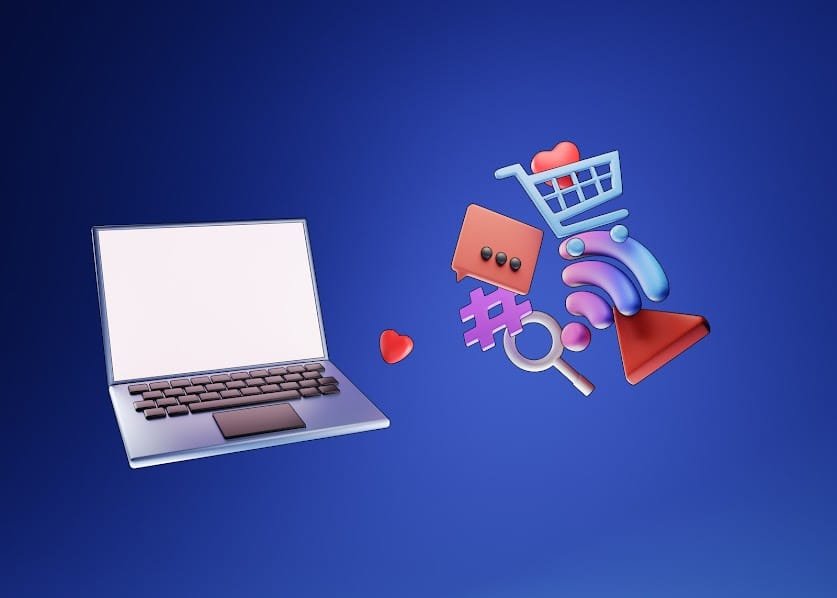Shopify for B2B vs B2C: Optimize Your Store for Any Market
In today’s competitive eCommerce landscape, businesses need to carefully consider the type of market they’re serving when setting up their online store. Shopify, one of the most popular eCommerce platforms, allows businesses to tailor their stores for different markets, including Business-to-Business (B2B) and Business-to-Consumer (B2C). However, optimizing a Shopify store for B2B or B2C can be quite different. If you’re unsure of how to approach this, Hire eCom, with its decade-long expertise in eCommerce, offers a wealth of services to help businesses get it right.
In this blog, we’ll dive into the key differences between B2B and B2C, and more importantly, how you can optimize your Shopify store for these distinct markets. We’ll also highlight how Hire eCom can support your efforts in tailoring your store for maximum impact.
Understanding the Key Differences: B2B vs. B2C
Before diving into the optimization techniques, it’s crucial to understand what sets B2B and B2C apart. Here’s a quick overview of the fundamental differences:
- Target Audience:
- B2B involves transactions between businesses, where the products or services are sold to other companies for operational use or resale.
- B2C, on the other hand, is focused on selling products or services directly to individual consumers for personal use.
- Sales Cycle:
- B2B sales cycles are typically longer, involving multiple decision-makers, negotiations, and a more personalized approach.
- B2C sales cycles are shorter, with decisions usually made by individual consumers, and often based on impulse or convenience.
- Transaction Volume and Value:
- B2B transactions often involve larger order volumes and higher order values.
- B2C transactions tend to be smaller in volume, with lower per-transaction values.
- Pricing Model:
- B2B often uses customized pricing based on factors like order volume, relationship, and negotiations.
- B2C pricing is generally fixed and transparent.
- Payment Terms:
- B2B deals may involve credit terms and invoices, allowing customers to pay over time.
- B2C transactions are typically completed through immediate payment methods like credit cards, debit cards, or digital wallets.
Shopify for B2B: Key Optimization Strategies
When setting up a Shopify store for B2B, it’s essential to consider the unique requirements of business buyers. Here are some best practices to optimize your Shopify store for the B2B market:
- Custom Pricing: One of the most significant features in B2B eCommerce is custom pricing based on bulk purchases, loyalty, or customer profiles. Shopify allows you to set up different price tiers, discounts, and special offers for different businesses. Hire eCom’s expertise in Shopify development can help you implement this customization effectively.
- Account Management: B2B buyers often require accounts for repeat orders, easier tracking, and exclusive access to special offers. You can set up private accounts and restrict access to specific products or pricing tiers based on customer roles. Hire eCom’s team can build an efficient, user-friendly account management system that suits your business’s specific needs.
- Wholesale Functionality: Shopify’s wholesale features allow you to set up a separate portal for B2B transactions. This can help streamline the buying process, ensure customers are given personalized attention, and offer features such as bulk ordering and discounts. Hire eCom’s tailored development services can ensure these features are integrated seamlessly into your Shopify store.
- Product Catalog Organization: B2B buyers usually look for specialized products in large quantities, so it’s essential to organize your product catalog efficiently. You can create dedicated categories, product bundles, or catalogs based on industries to simplify the buying process for business customers.
- Advanced Shipping Options: Shipping for B2B transactions may involve large orders, international shipping, or custom delivery timelines. Shopify offers advanced shipping integrations to handle such complexities. Hire eCom can help you configure these features for smooth, accurate order fulfillment.
- Invoicing and Payment Terms: Providing flexible payment terms, such as Net 30 or Net 60, is common in B2B transactions. Shopify allows you to configure invoicing systems that can be customized to your business needs. Hire eCom can assist in integrating these payment systems while ensuring a streamlined user experience.
Shopify for B2C: Key Optimization Strategies
Now, let’s shift our focus to optimizing Shopify for the B2C market. Here are the best strategies to enhance your Shopify store for consumer buyers:
- User-Friendly Experience: In B2C, a seamless and engaging shopping experience is paramount. Shopify’s responsive themes and user interface allow you to create an intuitive shopping journey for customers. Hire eCom specializes in creating personalized, attractive store designs that are both visually appealing and highly functional.
- Mobile Optimization: A significant portion of B2C traffic comes from mobile devices. Shopify’s mobile-responsive themes ensure that your store looks great on smartphones and tablets. Hire eCom ensures your store is optimized for all screen sizes, boosting your conversion rates.
- Product Pages & Reviews: B2C customers rely heavily on product descriptions, images, and reviews to make purchasing decisions. Shopify offers apps and integrations to enhance product pages with high-quality images, detailed descriptions, and customer reviews. Hire eCom’s design team can help make your product pages more compelling, increasing trust and driving sales.
- Promotions & Discounts: Offering discounts, flash sales, and special promotions can significantly boost conversions in the B2C market. Shopify has built-in tools that allow you to create various discount codes and promotional campaigns. Hire eCom can help you strategically set up these promotions to target the right customers and optimize your sales.
- Payment Gateway Integration: Shopify supports various payment gateways, including PayPal, Stripe, and Shopify Payments, offering flexibility for consumers. Hire eCom ensures that your Shopify store integrates seamlessly with multiple payment gateways to enhance the checkout process.
- Customer Engagement: B2C requires continuous engagement with customers through email marketing, social media, and personalized recommendations. Shopify integrates with tools like Mailchimp and Klaviyo to automate email campaigns, while apps like Yotpo help collect and showcase customer reviews. Hire eCom can help you develop an effective customer engagement strategy that drives repeat purchases and loyalty.
How Hire eCom Supports Your Shopify Optimization Efforts
At Hire eCom, we specialize in tailoring Shopify stores to meet the unique needs of both B2B and B2C markets. With our extensive experience in the eCommerce domain, we help businesses optimize their Shopify stores with strategies that increase efficiency, enhance user experience, and boost conversions.
Here’s how we assist you:
- Shopify Development: Our team of Shopify developers customizes your store to suit the specific needs of your target market—whether it’s B2B or B2C. We ensure your store is optimized for maximum functionality, security, and ease of use.
- Responsive Design: We design mobile-friendly, visually appealing, and user-centric stores that convert visitors into loyal customers. With years of experience, we know how to create a store that resonates with your target audience.
- SEO Optimization: Our SEO experts ensure that your Shopify store ranks high on search engines, driving organic traffic. We implement on-page SEO strategies such as optimizing titles, descriptions, and product listings to target high-traffic keywords.
- Advanced Features Integration: Whether you need custom pricing, payment gateway integration, or advanced shipping features, we integrate these tools into your Shopify store for both B2B and B2C needs.
- Marketing Strategy: From email campaigns to social media promotions, Hire eCom helps you develop effective marketing strategies that increase brand awareness, customer engagement, and sales.
Conclusion
Optimizing a Shopify store for B2B vs. B2C requires a tailored approach that aligns with the unique demands of each market. With Hire eCom’s expert Shopify development and eCommerce strategies, you can successfully build and optimize your online store to cater to the specific needs of your target audience, whether you’re serving businesses or individual consumers.
If you’re looking to optimize your Shopify store for B2B or B2C, Hire eCom is here to guide you every step of the way. Contact us today to learn how we can help transform your Shopify store into a powerful sales engine.






